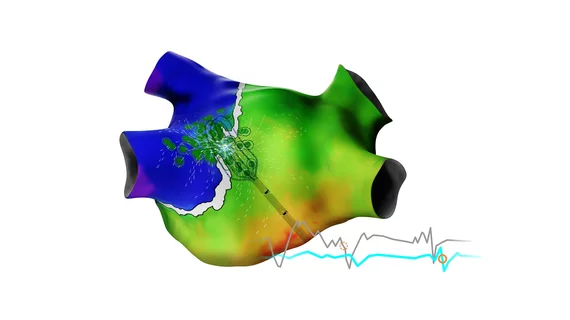Biosense Webster updates 3D heart mapping software with advanced AI models
Biosense Webster, a part of Johnson & Johnson MedTech, has released the latest version of its Carto 3 3D mapping software for cardiac ablation procedures. The update, officially known as Carto 3 System Version 8, includes new modules designed to improve efficiency in addition to advanced artificial intelligence (AI) algorithms.
The new modules included in this update are CartoSound FAM, which automatically generates a model of patient’s left atrial anatomy before users insert a catheter into their left atrium, and Carto Elevate, which helps electrophysiologists by making the activation maps more accurate and tracking atrial fibrillation (AFib) burden before and after ablation.
“We are pleased to announce this new version of our Carto 3 System, which reflects our continued focus on harnessing the latest science and technology to advance tools for electrophysiologists to treat cardiac arrhythmias,” Jasmina Brooks, president of Biosense Webster, said in a statement. “The Carto 3 System has been the cornerstone of catheter ablation procedures for more than a decade, helping electrophysiologists make treatment decisions. This new version advances the Carto 3 mapping and ablation experience through enhanced signal analysis, improved substrate characterization, and utilization of ultrasound technology.”
“By eliminating the need for manual contouring, the new system represents a new approach to anatomy creation, improving the efficiency of the procedure workflow,” added Luigi Di Biase, MD, PhD, system director of electrophysiology at Montefiore-Einstein Health System and a professor of cardiology at Albert Einstein College of Medicine. “Accuracy and precision in mapping the heart when treating cardiac arrhythmias are critical for electrophysiologists, and therefore, our patients.”
Biosense Webster first introduced the Carto 3 System in 2009 to help guide electrophysiologists during ablation procedures. Additional information is available here.

